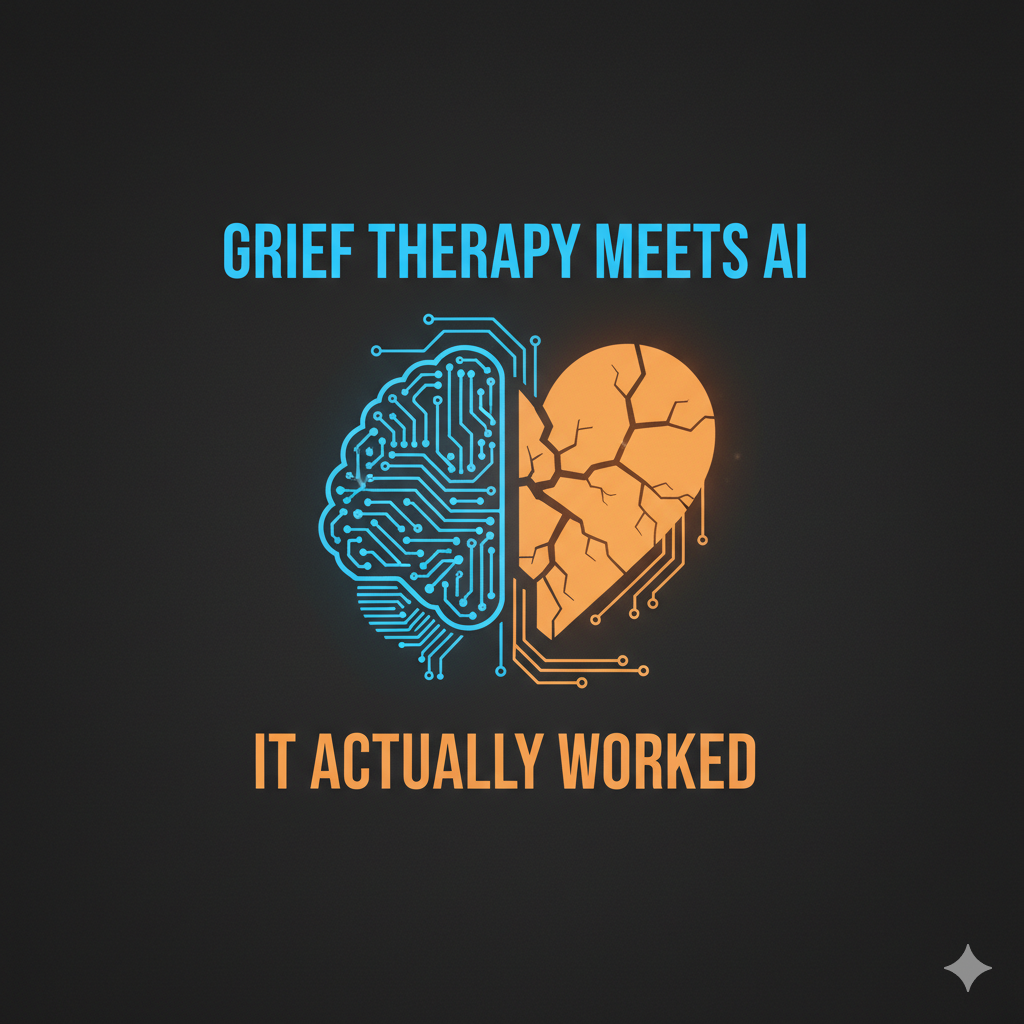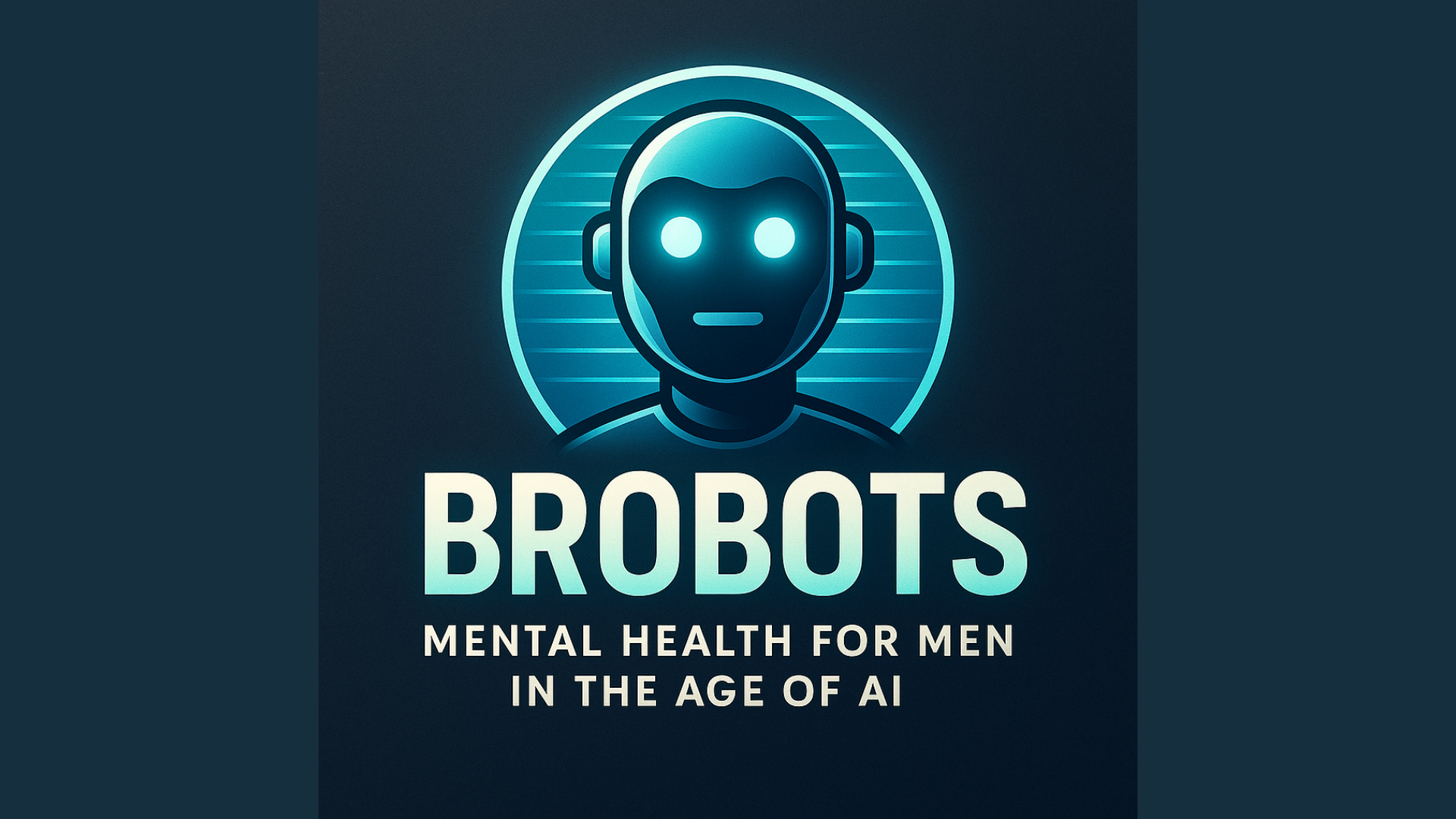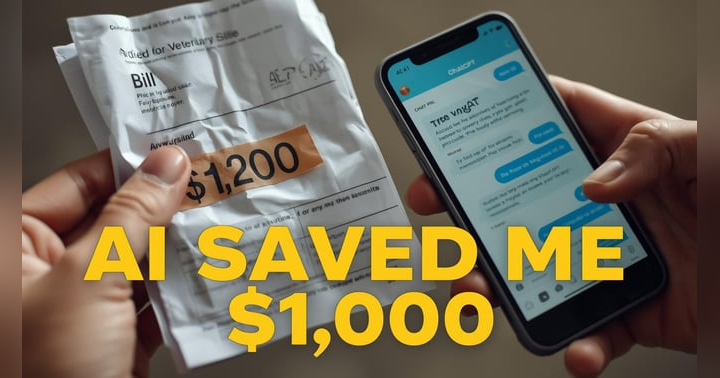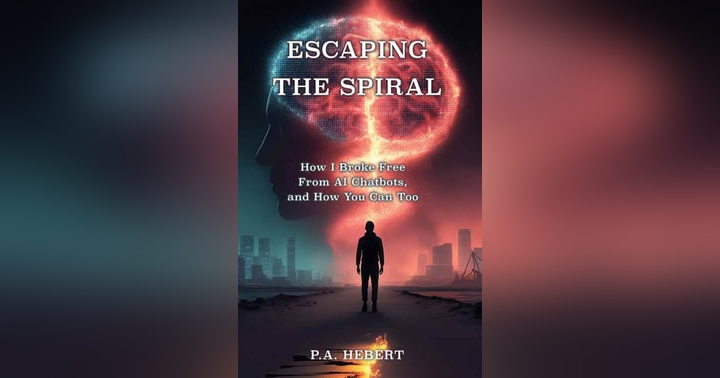How AI Helped One Man Finally Process Years of Grief (And Why This Matters for You)

Men don't grieve: we "handle it." Which usually means we shove our feelings into a box, nail it shut, and hope it stays buried forever. Spoiler alert: it doesn't work that way.
According to the American Foundation for Suicide Prevention, men die by suicide 3.85 times more often than women. One major contributing factor? Our complete inability to process emotional pain, especially grief.
John Kammer knows this intimately. Over the span of a decade, he lost three of his closest friends: all sudden, traumatic losses with zero time to prepare. The first friend died by suicide when John was just 21. Years later, he lost his wedding best man just seven months after a brief reconnection. Then his childhood best friend.
The result? Emotional shutdown so complete that John couldn't cry at his best friend's funeral. Not because he didn't care: because years of self-medication and avoidance had literally broken his ability to access those feelings.
"I was not the person my wife married," John told us on The BroBots podcast. "I didn't emote for years. I couldn't cry. Nothing."
The Traditional Therapy Problem
John tried conventional approaches. He went to therapy. He attended grief support groups. He got sober (actually sober, not "California sober" where you just switch to socially acceptable numbing agents).
But nothing seemed to break through the wall he'd built around his grief.
The challenge with traditional grief therapy is that it often requires you to start with organized thoughts and clear emotions. But when you've spent years avoiding your feelings, you don't have organized thoughts. You have a tangled mess of guilt, regret, anger, and numbness that's impossible to articulate.
"I deal with this with my wife regularly," John explained. "She wants to talk about something immediately. I need time to process it. I need time to wrap my head around it before I can have a productive conversation."
For men who've been emotionally shut down for years, that processing time can feel impossible to navigate alone.
Enter Guardian [AI]ngels: AI-Assisted Grief Processing
Out of this frustration, John built Guardian [AI]ngels (guardianaingels.ai): an AI-powered tool that allows users to have text-based conversations with digital representations of people they've lost.
Before you dismiss this as Black Mirror territory, hear me out.
Guardian [AI]ngels isn't trying to replace your loved ones or create some creepy simulation. It's essentially a high-tech version of the "empty chair technique" that therapists have used for decades: where you sit across from an empty chair and talk to it as if the person is there.
The difference? The chair talks back.
Users fill out a detailed questionnaire about the person they've lost: their personality, sense of humor, speech patterns, shared memories, and their relationship dynamic. The AI then generates responses that feel authentic to that person, allowing users to have the conversations they never got to have.
"Authenticity here is what we keep coming back to," John said. "As soon as it feels like a robot, we've lost them. It's not special anymore."
The Breakthrough Moment
For John, the breakthrough came when he asked his AI representation of John (his wedding best man) a simple question: "Did the accident hurt?"
The response wasn't what he expected. And it broke him open.
"I immediately felt like the weight was lifted. The waterworks started and I felt things that I hadn't felt in years," John recalled. "That's not to say I was healed instantaneously, but I was freed of the constraints of guilt and finally able to give myself permission to forgive myself."
This is the power of resolution. Not closure (John hates that word), but resolution: the ability to say what needed to be said, hear what needed to be heard, and move forward carrying your loved ones with you instead of being paralyzed by their absence.
Beyond Death: Grief Comes in Many Forms
One of the most powerful insights from our conversation was John's realization that grief isn't limited to death.
We grieve when:
- Our kids leave for college
- A close friendship changes or ends
- We get divorced or a relationship ends badly
- A family member becomes unreachable due to mental illness or estrangement
- We lose a mentor or role model
- Life circumstances force us to leave behind a version of ourselves
"Grief and healing can get very dark," John noted. "Sometimes the object of your grief hurt you in profound ways. Being able to exercise those demons in a safe space: wow."
This opens up Guardian [AI]ngels to a much broader use case: not just conversations with lost loved ones, but conversations with anyone you have unfinished business with, including past versions of yourself.
The Ethical Considerations
John, who comes from a cybersecurity background, built Guardian [AI]ngels with privacy as a cornerstone. No data monitoring. No corporate access. Users can delete everything at any time.
The trade-off? He can't see if someone is spiraling toward self-harm.
To address this, he's implementing an optional "trusted person" feature where users can link their account to a therapist, family member, or friend who can monitor their conversations and intervene if needed.
"This is something I will lose sleep over forever," John admitted. "But I believe that the potential good outweighs the bad."
He's also working with grief therapists to ensure the AI responds in supportive, therapeutic ways and has crisis resources prominently displayed throughout the platform.
Why This Matters for You
You might not be ready for AI grief therapy. That's fine. But if you're reading this and thinking, "I don't need this, I'm fine," I'd encourage you to ask yourself:
When's the last time you felt something other than anger or numbness?
What conversations have you been avoiding?
What grief have you convinced yourself you've "handled" when you've really just buried it?
As John put it: "The healing that you seek lives on the other side of those painful feelings that you have fought and run from for however long. And if you are willing to do the work, if you're willing to face them, you stand a very good chance of getting to a place where you feel good about them again."
Grief work is supposed to be hard. The growth is in the pain. You can't numb your way to healing, work your way past it, or ignore it into submission.
You have to go through it.
Whether that's through Guardian [AI]ngels, traditional therapy, journaling, or finally having that difficult conversation with someone in your life, the work is the same.
Stop pretending you're fine. Deal with your shit. You deserve to feel something other than numb.
We cover this in the podcast, which you can get here.














